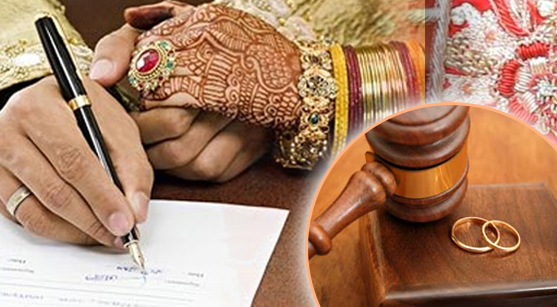
Abstract
Marriage is a fundamental institution in Indian society, and it carries significant legal, social, and cultural implications for couples. The validity of a marriage is determined by certain conditions that must be satisfied for the marriage to be recognized by the law.The first requirement for a valid marriage under Indian law is that both parties must be competent to enter into the marriage. This means that both partners must be of sound mind and must have attained a lawful age for marriage and other then these there are others which are discussed in the article below. It is worth noting that in addition to these legal requirements, certain social and cultural factors also play a role in determining the validity of a marriage in India. It is crucial for all parties involved in a marriage to be aware of these requirements to ensure that their marriage is valid under Indian law.
Introduction
Marriage is a sacred bond that is recognized by law in India. It is a social institution that is regarded as a union between two individuals who have decided to spend their lives together Marriage is a fundamental institution in Indian society, and it carries significant legal, social, and cultural implications for couples. As such, it is imperative that the legal requirements for a valid marriage under Indian law are well understood by all parties involved. The validity of a marriage is determined by certain conditions that must be satisfied for the marriage to be recognized by the law.
The conditions for a valid marriage under Indian law are as follows:
Age: The bride must be at least 18 years old, and the groom must be at least 21 years old. This is to ensure that the parties involved are mature enough to understand the nature of the marriage.
Consent: Both parties must give their free and informed consent to the marriage. Consent is considered to be the cornerstone of a valid marriage. If one of the parties is forced into the marriage, it will not be considered a valid union.
Mental capacity: Both parties must be of sound mind and capable of understanding the nature of the marriage. It is important that both parties are capable of making rational decisions, and understand the implications of their actions.
Prohibited relationships: The parties must not be within the prohibited degrees of relationship as defined by law. The Hindu Marriage Act prohibits marriages between close blood relatives such as siblings, cousins, and other close family members.
Monogamy: Both parties must be unmarried, and if they were previously married, their previous marriage must have been legally dissolved. It is illegal to have more than one spouse at the same time under Indian law.
Ceremony: The marriage must be solemnized according to the customs and rituals of the parties’ religion or community. The ceremony must be performed by a person authorized to do so under the law.
In addition to these conditions, there are also certain procedural requirements that must be fulfilled. For example, both parties must provide proof of age and identity, and register their marriage with the local registrar of marriages.
It is important to note that the law related to marriage in India is subject to change. The Indian government has made several amendments to the Hindu Marriage Act, the Special Marriage Act, and the Indian Christian Marriage Act, to reflect changing social norms and attitudes.
Some important judicial pronouncements related to marriage in India are:
Vishnu Dutt Sharma v. Manju Sharma (2009): In this case, the Supreme Court of India held that a marriage can only be considered valid if the parties have given their free and informed consent to the marriage. The court also emphasized the importance of mutual respect, trust, and understanding between the parties.
Sarla Mudgal v. Union of India (1995): The Supreme Court held that a Hindu husband who converts to Islam for the sole purpose of marrying a second wife without obtaining a divorce from his first wife is guilty of bigamy. The court emphasized that the purpose of the law is to protect the interests of women and prevent exploitation.
Sureshta Devi v. Om Prakash (1991): The Supreme Court held that a second marriage is void if the first marriage is still subsisting. The court emphasized the importance of monogamy in Indian society, and the need to respect the sanctity of marriage.
Conclusion
Marriage is a significant institution in Indian society, and its validity is determined by certain legal requirements that must be satisfied for the marriage to be recognized. These conditions include the competence of both parties to enter into the marriage, compliance with legal formalities, and consummation of the marriage. It is crucial for all parties involved in a marriage to be aware of these requirements to ensure that their marriage is valid under Indian law.The conditions for a valid marriage under Indian law are designed to protect the rights and interests of the parties involved. It is important to understand these conditions and fulfill them in order to ensure that your
